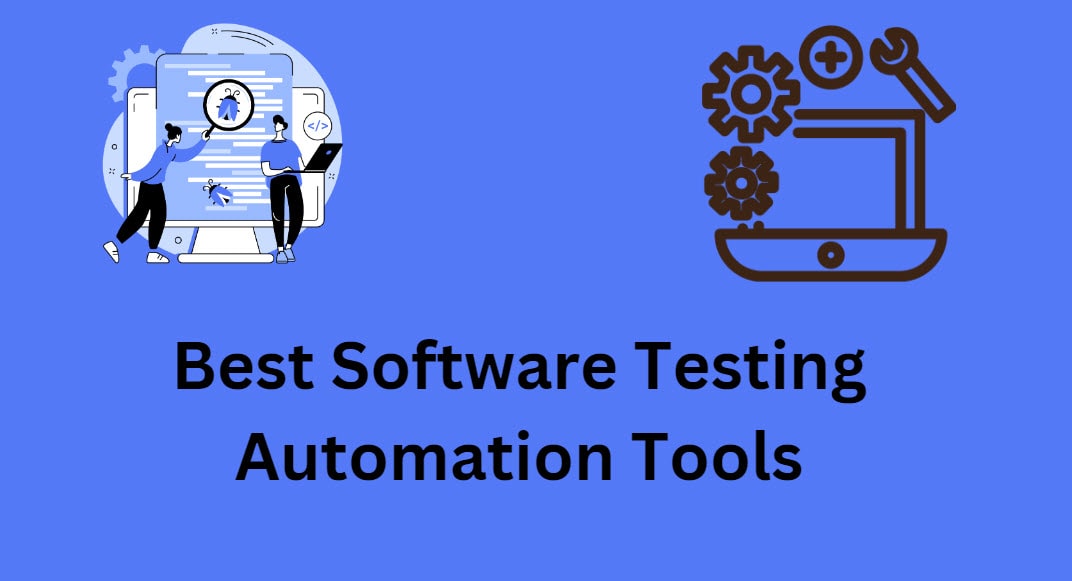The software development ecosystem has been evolving rapidly, driven by the continual pursuit of efficiency, scalability, and precision. One crucial facet of this ecosystem is software testing, which ensures the release of robust, secure, and reliable applications. The dynamic nature of today’s software industry has highlighted the importance of automation in testing. Testing automation tools are essential for achieving speed and accuracy, eliminating human errors, and enabling continuous testing and integration.
10 Best Software Testing Automation Tools
Here are the 10 best software testing automation tools for 2023 that are setting new standards in the industry.
1. Selenium
Selenium, an open-source automation tool, is one of the most popular tools for automating web applications. It supports multiple languages (Java, Python, C#, PHP, Ruby, Perl & JavaScript), platforms (Windows, Mac, Linux), and browsers (Chrome, Firefox, Safari & Edge). Selenium’s WebDriver makes direct calls to the browser using each browser’s native support for automation, providing more realistic user interactions.
2. Katalon Studio
Katalon Studio is a comprehensive toolset for web and mobile app automation testing. It’s integrated with tools such as JIRA, qTest, Kobiton, and Slack to streamline your team’s testing process. Katalon Studio’s flexibility is impressive, allowing testers to generate tests quickly through a record-and-playback tool and to write more advanced test scripts for complex scenarios.
3. TestComplete
SmartBear’s TestComplete is an automated UI testing tool with a robust feature set. It supports a wide range of applications, from desktop to web and mobile, and supports scripting in various languages, including Python, JavaScript, and VBScript. TestComplete’s object recognition combined with AI-powered visual recognition features help in creating stable and maintainable tests, reducing maintenance efforts.
4. Appium
Appium is an open-source automation tool for mobile applications. It allows the automation of native, hybrid, and mobile web applications running on iOS, Android, and Windows desktop platforms. One of its key features is the “write once, run anywhere” capability, supporting the reuse of code between iOS, Android, and Windows tests.
5. Postman
Postman is a popular tool in the API testing world. It allows users to send different types of HTTP requests, save environments for later use, and create complex workflows for testing. Postman also supports automated testing through the collection runner, making it a potent tool for testing APIs at a large scale.
6. JMeter
Apache JMeter is a pure Java-based open-source software designed to load-test functional behavior and measure performance. It is used to simulate heavy loads on a server, network, or object to analyze overall performance under different load types. JMeter supports multiple protocols, including HTTP, JDBC, JMS, and Web Services.
7. Tricentis Tosca
Tricentis Tosca is a continuous testing platform that accelerates testing with a scriptless, no-code approach for end-to-end test automation. With support for over 160 technologies and applications, Tosca enables risk-based testing, provides a dashboard for business-readable insights, and helps maintain test cases efficiently.
8. Cucumber
Cucumber is a tool for behavior-driven development (BDD). It bridges the communication gap between various project stakeholders such as developers, QA, and non-technical people by describing the behavior of the application in plain English. It supports many languages and can be integrated into various frameworks like Selenium, Ruby on Rails, etc.
9. Cypress
Cypress is a next-generation front-end testing tool built for the modern web. It’s fast, easy to set up, and comes packed with features that make writing and running tests more manageable. It’s JavaScript-based, works directly in the browser, and handles asynchronous testing effectively, making it an excellent choice for testing modern web applications.
10. Ranorex
Ranorex is a comprehensive tool for test automation. It provides a host of features for UI testing on desktop, web, and mobile, and includes support for many third-party controls. A standout feature of Ranorex is its detailed reporting capability, which provides comprehensive test run reports.
You might also like following the below articles
In conclusion, the choice of the right automation tool depends on the specific needs of your project. You need to consider factors like the technology stack of your application, the skills of your team, your budget, and the nature of the testing required. As the field of software testing continues to evolve, so too will the tools used for testing, making it an exciting space to watch in the coming years.

My name is Madhu, and I’m a certified Test Consultant with more than 16 years of hands-on experience developing and maintaining manual and Test Automation in the Software industry. I have experience with automation tools such as Selenium, Katalon Studio, etc.
